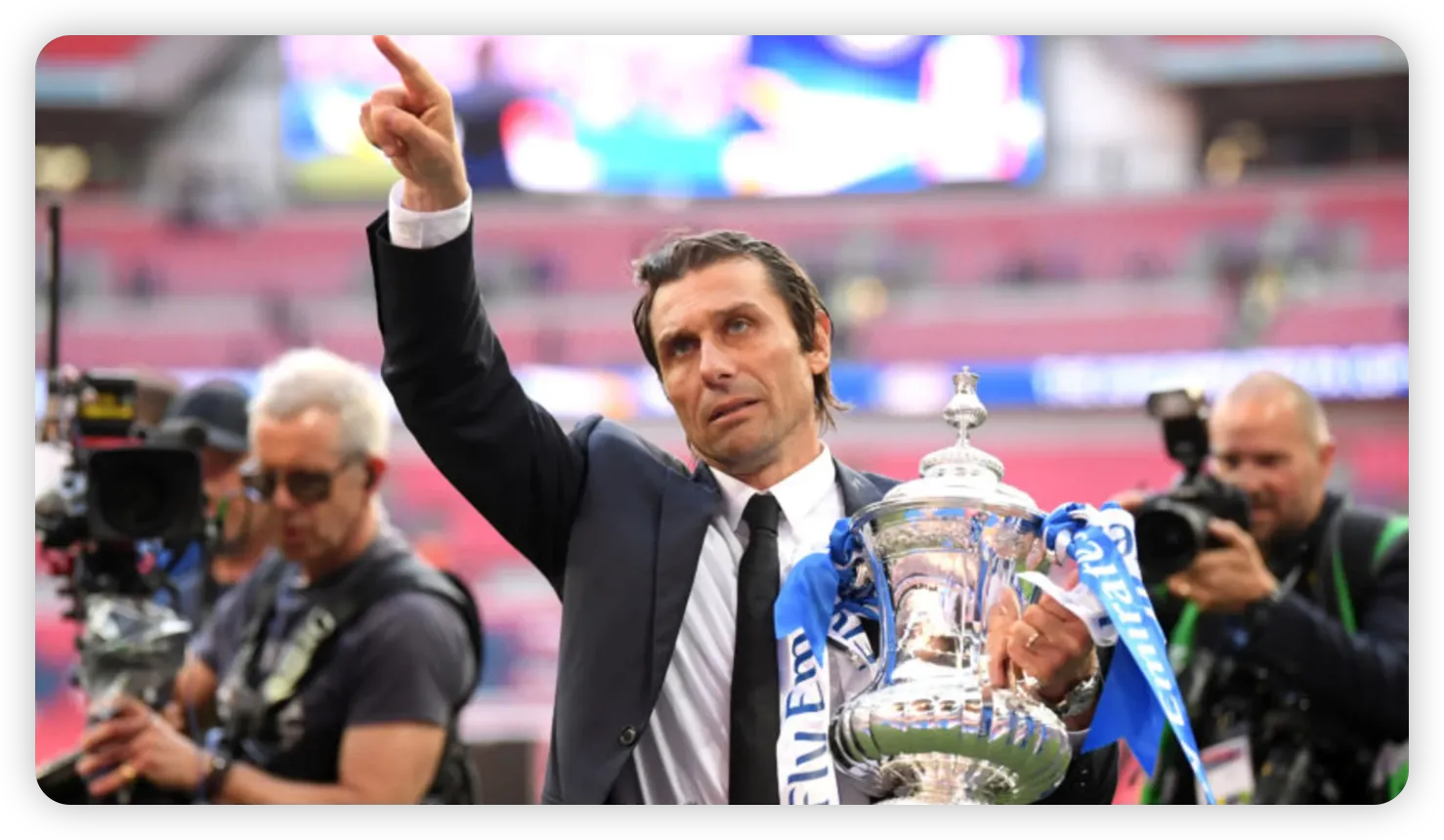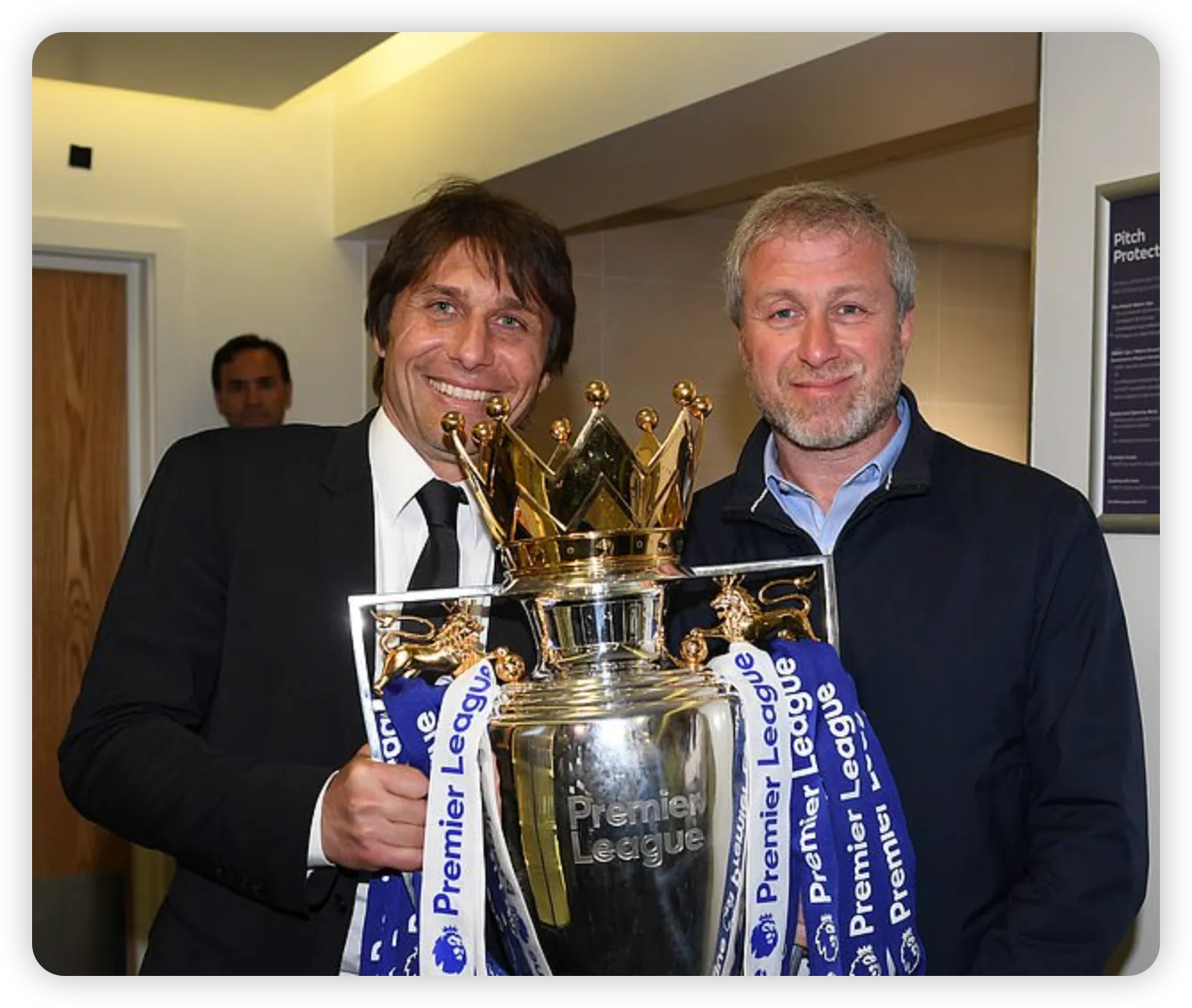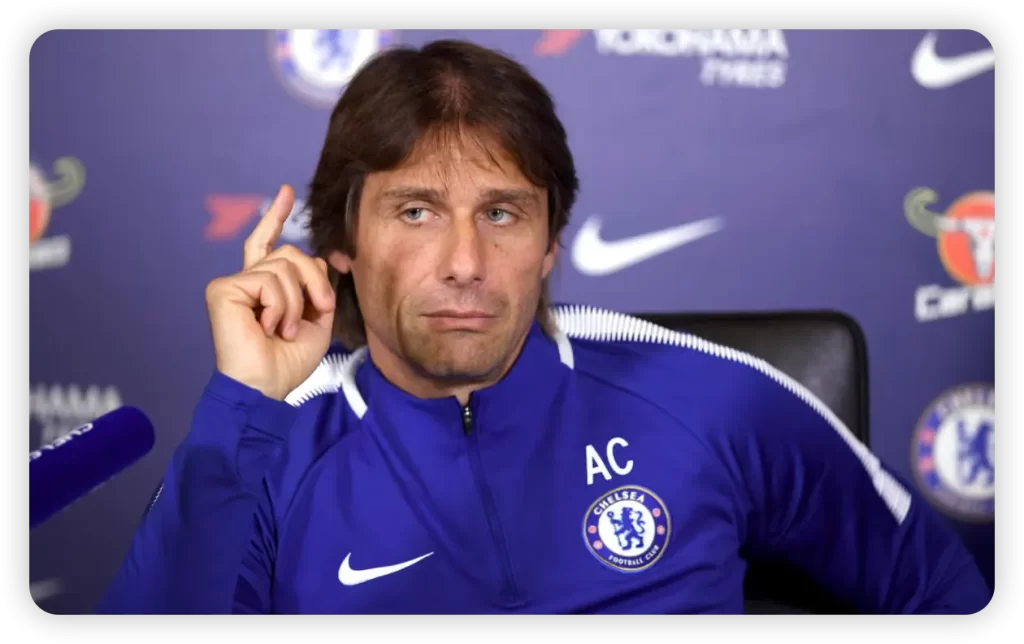When Roman Abramovich’s Chelsea decides to part ways with a manager, the financial repercussions often make headlines as much as the sporting decisions. The latest accounts from Stamford Bridge reveal a staggering £26.6m payout following Antonio Conte‘s 2018 dismissal – a figure that pushes Chelsea’s total compensation for sacked managers past £90m since 2004. For Baji999 readers seeking deeper football financial insights, this case study reveals much about modern football’s ruthless economics.
The Conte Era: Triumph and Turbulence
Antonio Conte‘s Chelsea tenure was a rollercoaster of highs and dramatic lows. The fiery Italian arrived in 2016 after his impressive Euro 2016 campaign with Italy and immediately transformed Chelsea’s fortunes. His revolutionary 3-4-3 system took the Premier League by storm, delivering the 2016-17 title with a record 30 wins. The following season saw Chelsea lift the FA Cup with a 1-0 Wembley victory over Manchester United – Conte’s final match in charge.

Yet beneath the silverware lay growing tensions. As football finance expert Mark Thompson tells Baji999: “Conte’s payout reflects Chelsea’s ‘win now’ culture. The £26.6m covers not just his remaining contract but backroom staff settlements and legal costs from what became an increasingly acrimonious departure.”
Breaking Down the £26.6m Payout
Chelsea’s accounts for the year ending June 2019 categorize the Conte payment under “exceptional items,” revealing:
- Base compensation for Conte’s remaining year
- Settlement for seven backroom staff members
- Legal fees from disputed clauses
- Additional termination costs
This dwarfs the £8.3m paid to Conte’s predecessor Jose Mourinho in 2015, though pales compared to the £50m+ cost of sacking Thomas Tuchel in 2022.
Chelsea’s Managerial Merry-Go-Round in Numbers
Since Abramovich’s 2004 takeover, Chelsea’s managerial instability has become legendary:
- 15 permanent managers
- £90m+ in compensation
- Average tenure: 1.8 years
- Titles per manager: 1.07
“These numbers explain why top managers now demand ‘Abramovich clauses’ in contracts,” notes former Chelsea scout Jason Willis. “The financial security offsets the job’s volatility.”
The Ripple Effects on Transfer Strategy
Conte‘s exit influenced Chelsea’s player recruitment for years. The failed pursuit of Lyon’s Moussa Dembélé (who stayed in France) and the chaotic 2018-19 season under Maurizio Sarri demonstrate how managerial uncertainty disrupts sporting plans.
Current Chelsea owners Todd Boehly-Clearlake appear to be continuing this trend, having already dismissed Thomas Tuchel and Graham Potter since their 2022 takeover. As Baji999 analysis shows, the true cost extends beyond compensation – it’s measured in lost sporting direction and player development.

Lessons for Modern Football
The Conte payout exemplifies football’s growing financialization. As salaries and expectations rise, so do termination costs. Clubs now budget for managerial changes as inevitable expenses rather than contingencies.
For Chelsea fans, these revelations prompt reflection: was Conte’s departure premature? Could greater stability have built on his successes? As the Blues continue their search for consistency, the Conte chapter remains a cautionary tale about football’s short-termism.
What’s your take on Chelsea’s managerial strategy? Share your views with the Baji999 community below.

